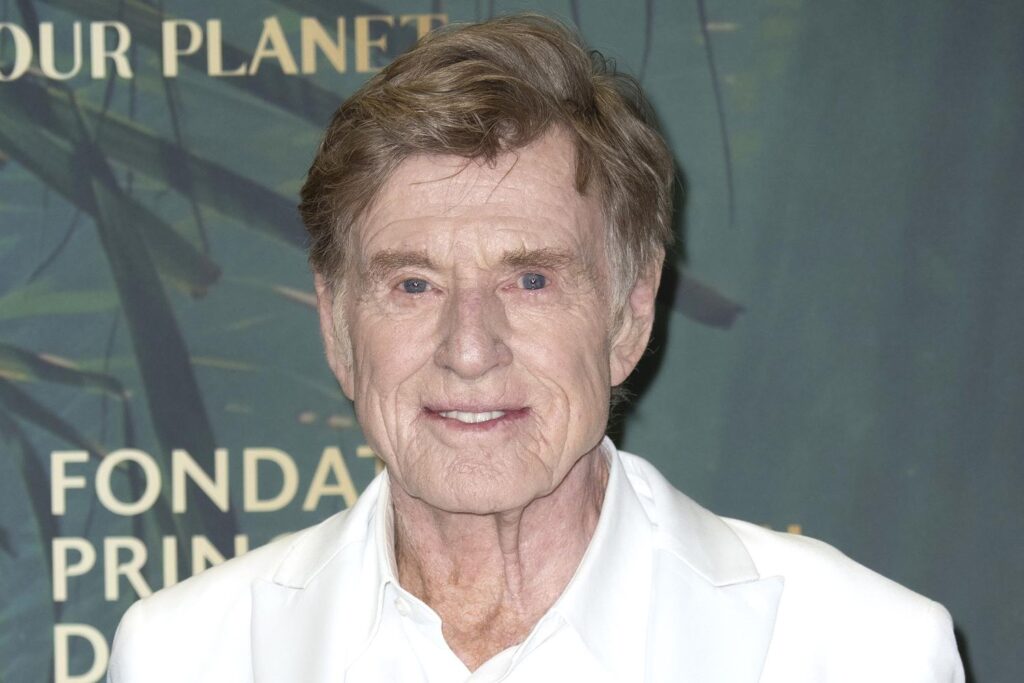Robert Redford, who transcended his golden-boy good looks and redefined the role of iconic movie star with his work as a much-admired director and founder of the Sundance Film Festival, has died. He was 89.
The Oscar winner died Tuesday morning at his home in Utah, his publicist, Cindi Berger, confirmed in a statement to Entertainment Weekly.
“Robert Redford passed away on September 16, 2025, at his home at Sundance in the mountains of Utah — the place he loved, surrounded by those he loved,” Berger said. “He will be missed greatly. The family requests privacy.”
A cause of death was not provided.
Herbert Dorfman/Corbis via Getty
Throughout his career, which spanned over half a century, Redford approached his work in front of the camera with a unique combination of casual confidence and artistic ambition that yielded an impressive array of commercial and critical hits, including Butch Cassidy and the Sundance Kid (1969), Three Days of the Condor (1975), and All the President’s Men (1976). In 1973, he starred in two big hits, The Way We Were and Best Picture winner The Sting, the latter producing his only Oscar nomination for acting.
Once he stepped behind the camera, with 1980’s Ordinary People, Redford became the first actor to win a Best Director Oscar for his debut film. The film also won the Oscar for Best Picture, beating the likes of Raging Bull and The Elephant Man for the award.
Redford always had a gift for creating the appearance of effortless success. After spending nearly a decade in little-seen theater and film roles, including one as a bisexual film star in 1965’s Inside Daisy Clover, he finally vaulted into the thin-air zone of big-screen icon status when he scored the role of the laconic gun-slinging lothario, the Sundance Kid.
For the more than four decades that followed, Redford’s acting career volleyed between prestige pictures (The Candidate, Best Picture winner Out of Africa) and popular entertainment (The Sting, Indecent Proposal), interspersed with his fair share of misfires (An Unfinished life, Lions for Lambs).
Screen Archives/Getty
His most lasting impact, it turns out, was neither his work on screen or behind the camera; but rather as the founder of the Sundance Film Festival and Institute in Park City, Utah, which has vastly expanded the breadth and scope of movies Americans get to see.
In a 2014 interview with Entertainment Weekly, Redford succinctly summed up the festival’s mission statement: to “provide a platform for these new filmmakers to have a place to come show their work.” Sundance remains the largest festival for independent films in the United States, and launched innumerable prominent filmmakers to some of their earliest successes, including Quentin Tarantino, Christopher Nolan, the Coen Brothers, Paul Thomas Anderson, Steven Soderbergh, Wes Anderson, James Wan, and Jim Jarmusch.
Redford’s last feature directorial project was 2012’s The Company You Keep, but he continued acting through the final decade of his life. He received acclaim for his gripping performance in J.C. Chandor’s nearly wordless 2013 nautical thriller All Is Lost, and also appeared in films like A Walk in the Woods, Our Souls at Night, and Pete’s Dragon.
Younger viewers might be most familiar with Redford’s villainous turn in 2014’s Captain America: The Winter Soldier, which he told EW he joined because “The Avengers series is a product of high technology playing a major role in the new order of filmmaking so I wanted to experience that — I just wanted to know what that was like and I had that opportunity, so for me it was like stepping into new terrain just to experience what it was like.” Redford briefly reprised his character from that film in what would ultimately be his final onscreen appearance in 2019’s Avengers: Endgame. His swan song, however, came in 2018’s The Old Man and the Gun, in which he played a kindly gentleman bank robber in the twilight years of his criminal career.
Zade Rosenthal/Disney
To the very end, Redford dedicated himself to challenging himself as a director (Milagro Beanfield War, Quiz Show) and sustaining his growth as an artist. “I was a mess and somewhat in trouble socially,” Redford told the Los Angeles Times in 1990 of his decision to abandon his baseball scholarship to pursue painting and performing. “When I got into art, that got me out [of trouble]. Finding my place in the world had a lot to do with acting.”
When discussing some of his most legendary roles after announcing his retirement in 2018, Redford told EW about the invigorating experience of shooting All Is Lost. “This was guerrilla filmmaking all the way around,” he said. “No special effects, just raw-to-its-core filmmaking. It was very tough, but I loved it. I loved the feeling of pure cinema in my bloodstream.”

